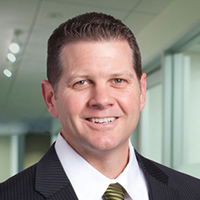5 Often-Overlooked Questions to Ask Your Financial Adviser in the New Year
Get your financial year off on the right foot by getting the answers to these key questions.


Profit and prosper with the best of Kiplinger's advice on investing, taxes, retirement, personal finance and much more. Delivered daily. Enter your email in the box and click Sign Me Up.
You are now subscribed
Your newsletter sign-up was successful
Want to add more newsletters?

Delivered daily
Kiplinger Today
Profit and prosper with the best of Kiplinger's advice on investing, taxes, retirement, personal finance and much more delivered daily. Smart money moves start here.

Sent five days a week
Kiplinger A Step Ahead
Get practical help to make better financial decisions in your everyday life, from spending to savings on top deals.

Delivered daily
Kiplinger Closing Bell
Get today's biggest financial and investing headlines delivered to your inbox every day the U.S. stock market is open.

Sent twice a week
Kiplinger Adviser Intel
Financial pros across the country share best practices and fresh tactics to preserve and grow your wealth.

Delivered weekly
Kiplinger Tax Tips
Trim your federal and state tax bills with practical tax-planning and tax-cutting strategies.

Sent twice a week
Kiplinger Retirement Tips
Your twice-a-week guide to planning and enjoying a financially secure and richly rewarding retirement

Sent bimonthly.
Kiplinger Adviser Angle
Insights for advisers, wealth managers and other financial professionals.

Sent twice a week
Kiplinger Investing Weekly
Your twice-a-week roundup of promising stocks, funds, companies and industries you should consider, ones you should avoid, and why.

Sent weekly for six weeks
Kiplinger Invest for Retirement
Your step-by-step six-part series on how to invest for retirement, from devising a successful strategy to exactly which investments to choose.
With the new year upon us, you’ve likely been giving some thought to your investment portfolio and your planning priorities for 2019. A new calendar year is always a great time to take a step back to reflect on your goals and reset your financial plan to make sure you are on track.
One of my favorite mantras is that great outcomes stem from asking great questions. This is also a useful way to think about your finances and can often save you from making costly mistakes.
Start 2019 one step ahead by asking your financial adviser these five commonly overlooked questions to help you optimize your finances.
From just $107.88 $24.99 for Kiplinger Personal Finance
Become a smarter, better informed investor. Subscribe from just $107.88 $24.99, plus get up to 4 Special Issues

Sign up for Kiplinger’s Free Newsletters
Profit and prosper with the best of expert advice on investing, taxes, retirement, personal finance and more - straight to your e-mail.
Profit and prosper with the best of expert advice - straight to your e-mail.
1. How much am I paying in fees?
It's not always easy to get a handle on your investing costs, but you should know what you’re paying—and getting that information should be as easy as asking your adviser to spell it out for you. Do you know what your annual advisory fees are? That’s a great place to start. Then, ask your adviser to outline anything else you could be paying for, such as fund fees, account fees and transaction fees. While costs like operating expenses on ETFs or mutual funds are often inevitable, some products have higher fees than others, and it’s crucial to keep an eye on how they are affecting your returns.
2. What employer-sponsored savings accounts and financial benefits should I take advantage of?
Make time to ensure you’re taking full advantage of any employer-sponsored retirement plans, savings accounts or other financial benefits available to you. Your adviser can help you determine how your 401(k) fits into your broader retirement plan, as well as the best way to leverage other financial plans your employer might offer, like medical savings accounts (a flexible spending account or a health savings account) or employee stock purchase plans. Remember that if your employer offers contribution matching to your 401(k) it’s generally smart to take advantage of the full match. An additional benefit of any amount contributed by your employer is that it doesn’t count toward the annual IRS limit you can contribute yourself to max out your 401(k), meaning you can put more toward your retirement.
3. How do the (relatively) new tax laws impact me?
The Tax Cuts and Jobs Act that passed in late 2017 first took effect last tax season, but chances are you may still be adjusting to the changes, so it’s a good idea to look closely at how they affect you at the beginning of the year. A few noteworthy differences to be aware of are that most tax brackets are lower, the child tax credit has gone up, the allowance for itemized medical expense deductions increased, alimony payments are no longer deductible from taxable income, and inheritance tax exemptions have risen significantly. Even if you are aware of the new tax environment, you could have overlooked some of its effects. Be sure to speak with your financial adviser as well as a tax adviser about how these and other tax changes could impact your finances.
4. How much risk is appropriate for me right now?
The answer to this question is going to be different for every investor, and your financial adviser can help you determine how much risk within your portfolio is appropriate for you based on your age, financial situation, long-term goals and general level of risk aversion. It’s just as important to remember that your risk tolerance will likely change as you get closer to retirement and make more conservative financial moves, so it’s wise to re-evaluate where you stand periodically.
5. What other services are available to me?
Finally, ask your adviser what other services are available to you through their firm. Can they help you with your estate, legacy, tax, banking or other planning? These items may be important pieces of your financial plan. Don’t be afraid to ask what you get for your advisory fee to maximize your financial professional’s expertise or for a reference to an outside expert.
Most importantly, make sure any conversation with your financial adviser delves into your specific long-term goals and how you are tracking against them. A final question to ask during a sit-down might be as simple as, “What else should I be considering, and do you have a specific recommendation for me?” Your life stage, your needs and your goals are all unique to you. Your plan of attack for the new year should be the same.
(0119-84JE)
Profit and prosper with the best of Kiplinger's advice on investing, taxes, retirement, personal finance and much more. Delivered daily. Enter your email in the box and click Sign Me Up.

Joe Vietri has been with Charles Schwab for more than 25 years. In his current role, he leads Schwab's branch network, managing more than 2,000 employees in more than 300 branches throughout the country.
-
 How Much It Costs to Host a Super Bowl Party in 2026
How Much It Costs to Host a Super Bowl Party in 2026Hosting a Super Bowl party in 2026 could cost you. Here's a breakdown of food, drink and entertainment costs — plus ways to save.
-
 3 Reasons to Use a 5-Year CD As You Approach Retirement
3 Reasons to Use a 5-Year CD As You Approach RetirementA five-year CD can help you reach other milestones as you approach retirement.
-
 Your Adult Kids Are Doing Fine. Is It Time To Spend Some of Their Inheritance?
Your Adult Kids Are Doing Fine. Is It Time To Spend Some of Their Inheritance?If your kids are successful, do they need an inheritance? Ask yourself these four questions before passing down another dollar.
-
 The 4 Estate Planning Documents Every High-Net-Worth Family Needs (Not Just a Will)
The 4 Estate Planning Documents Every High-Net-Worth Family Needs (Not Just a Will)The key to successful estate planning for HNW families isn't just drafting these four documents, but ensuring they're current and immediately accessible.
-
 Love and Legacy: What Couples Rarely Talk About (But Should)
Love and Legacy: What Couples Rarely Talk About (But Should)Couples who talk openly about finances, including estate planning, are more likely to head into retirement joyfully. How can you get the conversation going?
-
 How to Get the Fair Value for Your Shares When You Are in the Minority Vote on a Sale of Substantially All Corporate Assets
How to Get the Fair Value for Your Shares When You Are in the Minority Vote on a Sale of Substantially All Corporate AssetsWhen a sale of substantially all corporate assets is approved by majority vote, shareholders on the losing side of the vote should understand their rights.
-
 How to Add a Pet Trust to Your Estate Plan: Don't Leave Your Best Friend to Chance
How to Add a Pet Trust to Your Estate Plan: Don't Leave Your Best Friend to ChanceAdding a pet trust to your estate plan can ensure your pets are properly looked after when you're no longer able to care for them. This is how to go about it.
-
 Want to Avoid Leaving Chaos in Your Wake? Don't Leave Behind an Outdated Estate Plan
Want to Avoid Leaving Chaos in Your Wake? Don't Leave Behind an Outdated Estate PlanAn outdated or incomplete estate plan could cause confusion for those handling your affairs at a difficult time. This guide highlights what to update and when.
-
 I'm a Financial Adviser: This Is Why I Became an Advocate for Fee-Only Financial Advice
I'm a Financial Adviser: This Is Why I Became an Advocate for Fee-Only Financial AdviceCan financial advisers who earn commissions on product sales give clients the best advice? For one professional, changing track was the clear choice.
-
 I Met With 100-Plus Advisers to Develop This Road Map for Adopting AI
I Met With 100-Plus Advisers to Develop This Road Map for Adopting AIFor financial advisers eager to embrace AI but unsure where to start, this road map will help you integrate the right tools and safeguards into your work.
-
 The Referral Revolution: How to Grow Your Business With Trust
The Referral Revolution: How to Grow Your Business With TrustYou can attract ideal clients by focusing on value and leveraging your current relationships to create a referral-based practice.